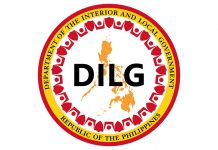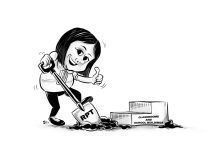
THE APPOINTMENT of Jesus Crispin “Boying” Remulla as the new Ombudsman comes at a time when the credibility of government institutions is on the line. With billions of pesos in alleged “ghost projects,” irregular contracts, and unexplained wealth under scrutiny, the Office of the Ombudsman stands once again at the crossroads of law and politics. Its power to restore public trust – or to erode it further – rests squarely on the shoulders of its new chief.
Created under Article XI of the 1987 Constitution, the Office of the Ombudsman serves as the State’s principal guardian against corruption. Its mandate is clear: investigate and prosecute public officials for graft and misconduct, file cases before the Sandiganbayan, and recommend disciplinary actions where abuse of power is evident. In short, it is the citizen’s last line of defense against impunity in government.
But the office’s strength depends not on its design, but on the integrity of the person who leads it. The Ombudsman must be fearless, impartial, and insulated from political influence. The law demands independence; the times demand courage. And that is where the challenge lies for Remulla.
The new Ombudsman assumes office at a moment when questions of accountability are no longer confined to the lower ranks of bureaucracy but extend to the highest corridors of power. Investigations on flood control anomalies, procurement irregularities, and unexplained assets require decisive action. Not silence or compromise. The people expect the Ombudsman to pierce the political veil that has too often shielded the powerful from prosecution.
Under Republic Act No. 6770, or The Ombudsman Act of 1989, the office enjoys wide investigative and prosecutorial powers. It can subpoena records, suspend public officials, and initiate criminal cases. Yet, history has shown that these powers are often blunted by political ties, bureaucratic inertia, and selective enforcement. The measure of Remulla’s leadership will therefore be simple: whether the law applies equally to all, or only to those outside the circle of power.
In an era of public disillusionment, where “good governance” has become a slogan rather than a standard, the Ombudsman’s relevance cannot be overstated. The Filipino people do not need another bureaucrat. They need a bulwark. Every delayed investigation, every ignored complaint, chips away at the Constitution’s promise that public office is a public trust.
If Remulla wishes to prove that his appointment is more than political theater, he must act swiftly to strengthen transparency, protect whistleblowers, and ensure coordination with agencies such as the Anti-Money Laundering Council (AMLC) and Commission on Audit (COA). The law already grants him the tools; what remains to be seen is whether he will wield them.
The title “Ombudsman” is not an honorific. It is a burden of moral accountability. Remulla’s tenure will determine whether that burden becomes a shield for the people or a refuge for the powerful. In the fight against corruption, neutrality is not virtue – it is surrender./PN







